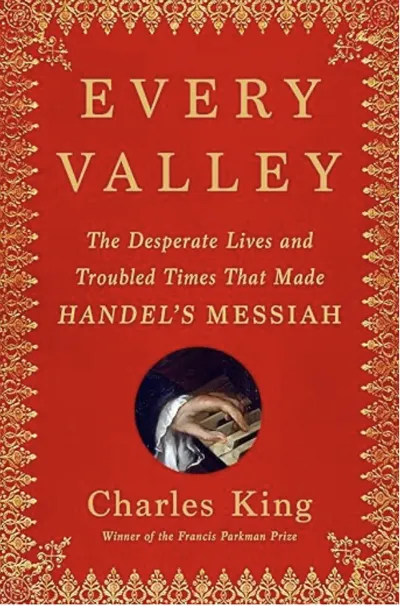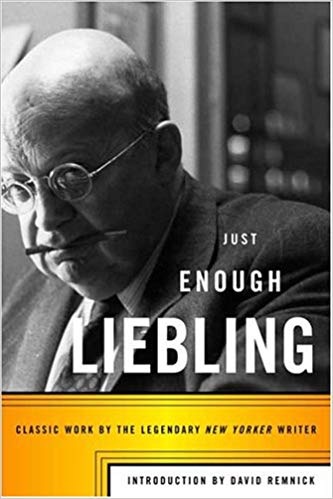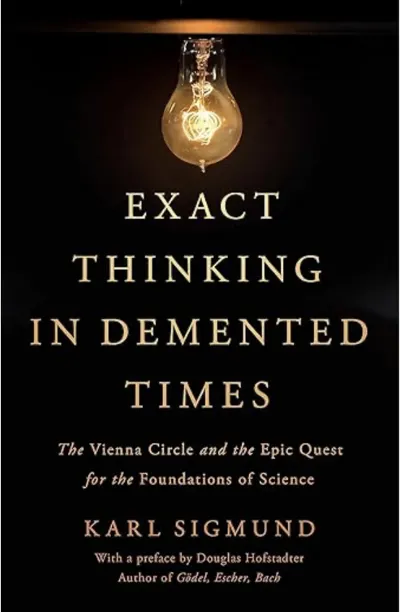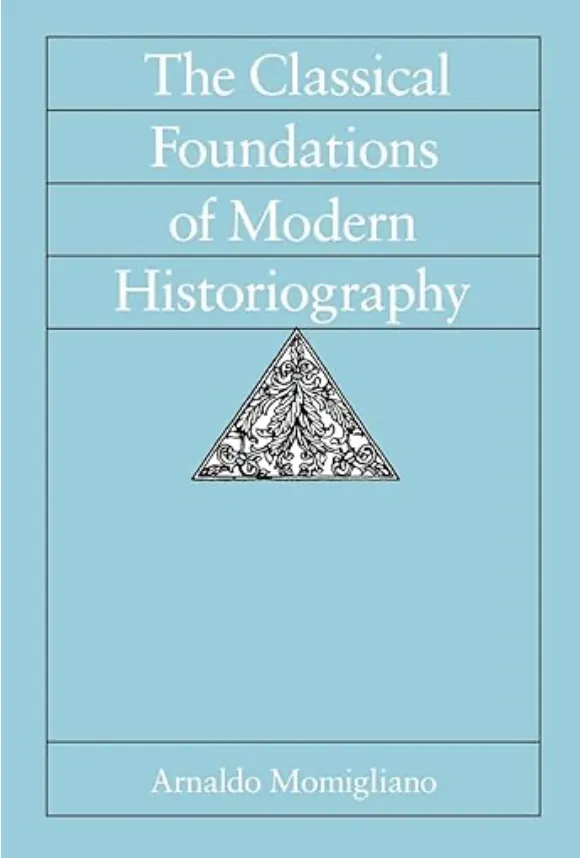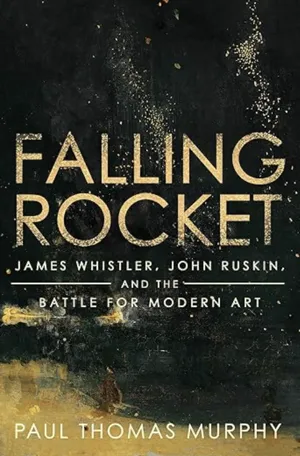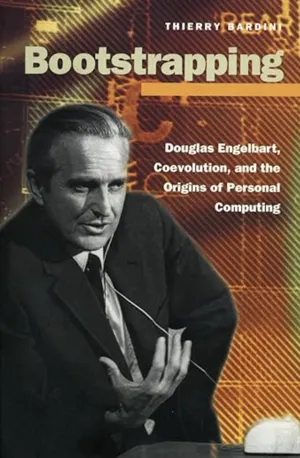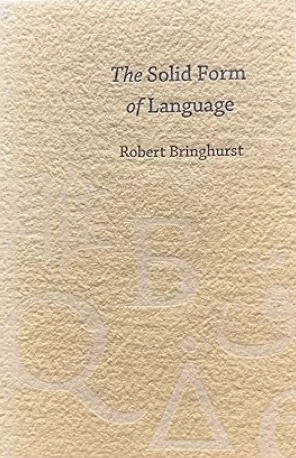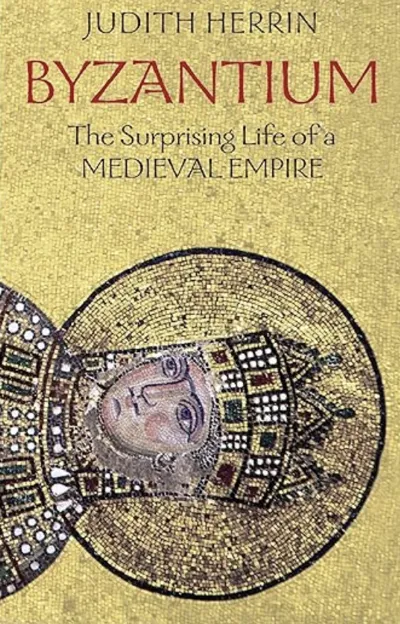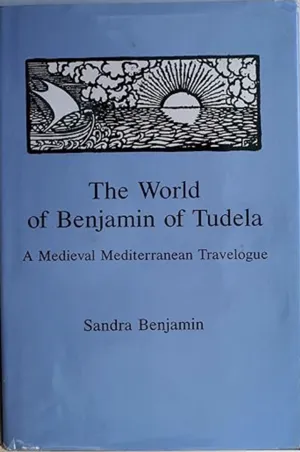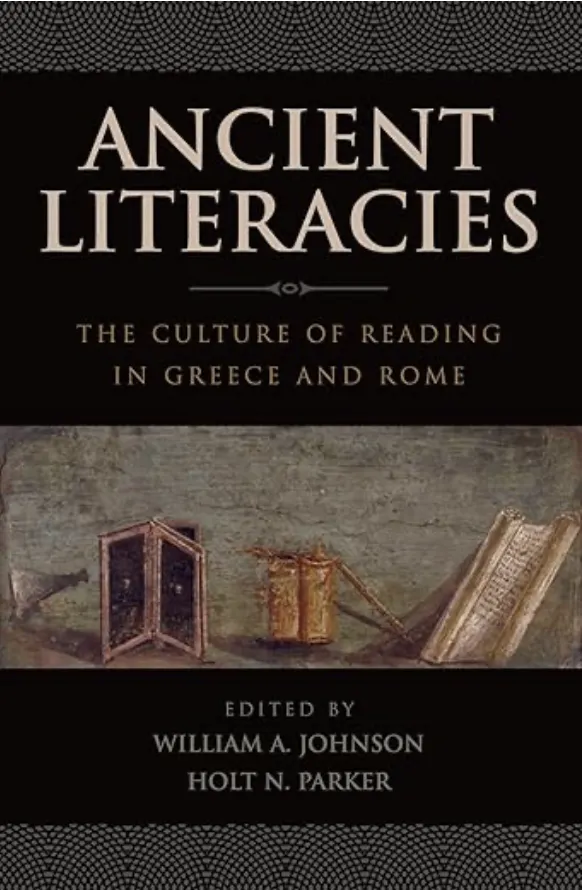Here's what I've been reading lately.
I try to write a short note on each book I read. This helps me think more clearly about what I'm reading — and about what I haven't found time to read. It's also a very handy way to find half-remembered titles.
I use Tinderbox agents to build pages for some of my favorite essayists, including Roger Ebert, David Mamet, and Louis Menand.
1155 Books: by author | by title
2024
2023
2021 Fall | Summer | Spring | Winter
2020 Fall | Summer | Spring | Winter
2019 Fall | Summer | Spring | Winter
2018 Fall | Summer | Spring | Winter
2017 Fall | Summer | Spring | Winter
2016 Fall | Summer | Spring | Winter
2015 Fall | Summer | Spring | Winter
2014 Fall | Summer | Spring | Winter
2013 Fall | Summer | Spring | Winter
2012 Fall | Summer | Spring | Winter
2011 Fall | Summer | Spring | Winter
2010 Fall | Summer | Spring | Winter
2009 Fall | Summer | Spring | Winter
2008 Fall | Summer | Spring | Winter
2007 Fall | Summer | Spring | Winter
2006 Fall | Summer | Spring | Winter
2005 Fall | Summer | Spring | Winter
2004 Fall | Summer | Spring | Winter
2003 Fall | Summer | Spring | Winter
2002 Fall | Summer | Spring | Winter
2001 Fall | Summer | Spring | Winter
2000 Fall | Summer | Spring
I’ve been reading and watching a lot of material on figure skating to prepare for seeing the Worlds next week, and this was a pleasant part of that immersion. Alina Adams, a sports television researcher, was approached to do a mystery about the figure skating world. Naturally, the investigator in this PI procedural is Rebecca “Bex” Levy, a TV researcher covering the Nationals. After a controversial ruling, an Italian judge is found dead under suspicious circumstances, and Bex’s loathsome producer is eager to have her deliver the answer in time for the closing gala.
One oddity here is that Murder On Ice doesn’t quite meet the technical requirements of the genre: there is no second body. Nor is it a thriller, because Bex never really leaves her element; she’s an intelligent and (mildly) analytical observer of a sport and a medium for which she feels little affinity, and even when she’s most worried, her concerns are chiefly about losing a job that she doesn’t much like. We have good — even great — books that flutz the formal requirements of the mystery, but I found it odd here because figure skating is so concerned with formal requirements.
March 17, 2025 (permalink)
Gabriel Kreuther
Gabriel Kreuther and Michael Ruhlman
A beautifully-produced and evocative book by an Alsatian farm boy who became a famous New York fine dining chef. The book combines two separate books. The first is a nice cookbook about traditional foods in Alsace with an emphasis on home cooking. The second is an ambitious cookbook that takes ideas from traditional dishes and adds elegant ingredients and modernist technique. It makes for good reading.
March 8, 2025 (permalink)
What An Owl Knows
Jennifer Ackerman
An engaging, informal treatment of the natural history of the owl. People like owls, because owls look like people. (In some places, people mistrust owls for the same reason, thinking that they prophecy death and disaster.) They’re fascinating creatures with some curious habits; Burrowing Owls, for example, like to decorate their burrows with pretty little things. Some owls keep blind snakes as pets in order to help clean their nest. Some male Snowy Owls summer in the arctic and then, when the cold really sets in, fly even further North to hunt ducks and geese.
We’re learning a lot from some ingenious equipment — remote cameras, tiny little owl-sized backpacks, in-flight brain scans. I’d hoped to learn more about what owls know, because a lot of progress is being made right now in animal cognition. We just don’t know very much, alas, not yet.
March 7, 2025 (permalink)
This fascinating (and gorgeous) book examines Adler & Sullivan’s lost masterpiece. Built in 1891, this was briefly the world’s tallest building. Demolished in 1961, it had become an unwanted derelict, soon to be replaced by a grimy parking garage.
John Vinci, the editor, had recently finished college when he got a temporary job with photographer Richard Nickel, to work on salvaging some of the building’s amazing terra-cotta and plaster ornamentation. This three-man crew worked just steps ahead of the wreckers, but their notes offer fascinating insights into how the building worked, how it was built, and how its design was compromised by neglect and bad taste. Chris Ware, the comic book artist, designed the book, and it’s simply amazing.
March 5, 2025 (permalink)
A terrific book, through which I am cooking. I’m not religious about this, and I’m not planning a Julia, but this is a fun book, and since it seems I can withstand pie crusts as well as plain bread, pies are more fun.
So far I’ve tried short rib pie, chicken pot pie (biscuits), chorizo and goat cheese pie (twice), and smoked turkey pot pie (with extra leeks and no celery — oops). Really good.
February 23, 2025 (permalink)
A fascinating discussion of features that make Tokyo a unique and livable city. The discussion of yokochō alleyways is particularly interesting. These narrow streets of tiny two-story bars and restaurants grew from a postwar effort to shut down the black market traffic that centered on Tokyo rail stations. Black-market vendors were removed from their haunts and sent off to new-built market stalls, and these grew into entertainment districts that people like and that show up all the time in movies. This is very on-trend: there’s maybe space for five customers at a time, but rents are low and you can cater to very specialized interests. If you squint, you can see the germ of Robuchon’s atelier and David Chang’s noodle bar.
I’m interested because a small group of us are reviving an old idea of the imaginary city as a view of a hypertext.
Photo: Lan Pham
January 10, 2025 (permalink)
An interesting examination of the libretto of Messiah and how it relates to Georgian England, with an emphasis on slavery. Messiah started as Charles Jennens’s commonplace book, with headings on hope, suffering, and redemption. Jennens was a Handel superfan and had money, and he worked out a deal with his favorite composer, whom he call “The Prodigious”. I wish the book said more about the music, but you can’t have everything.
Question: King makes a point that the first contralto aria in the Dublin premiere was “He Was Despised”, and that Mrs. Cibber’s exquisite acting (and, I presume, phrasing) more the compensated for the shortcomings of her voice. But don’t you need an alto in Part I for “For who may abide the day of his coming?” and “O thou that tallest good tidings to Zion?”
December 6, 2024 (permalink)
A. J. Liebling wrote wonderful columns about food for The New Yorker in a time when food writing was seldom considered suitable for anything but the women’s pages. His account of being an impoverished art student in interwar Paris and choosing between good food and good wine is memorable, and is also a modern morality.
December 2, 2024 (permalink)
A beautiful book of immense erudition and perception, this book has influenced my work deeply. It does things I did not think possible, and draws connections I did not think could be drawn. Yet, it is plainspoken, considerate, and unfailingly entertaining.
November 12, 2024 (permalink)
A fascinating study of Vienna between the wars and its immense contributions to modernism and to computing. Vienna was a huge capital city that governed what had become a small country. Austria had lost her empire and her markets, the economy had been shredded, and vast numbers of people from the former provinces converged on a city with insufficient housing, a place that had long seen itself as governed by schleppers. Yet, for a decade, it became the intellectual center of the world, before the Viennese threw it all away for the satisfactions of Fascism.
November 12, 2024 (permalink)
A wonderful and thorough history of the intersecting philosophical and mathematical circles in Vienna from the early 1920s to their end in Austrian Fascism and the Anschluss. Sigmund offers sensitive and intelligent portrayals of the most notable participants (though he rather neglect John von Neumann) as well as those who, like the note-taking Dr. Rose Rand, were ill-treated in life and neglected afterward. This deserves special praise because, in this broad group biography, few of the characters are easy to identify with. Sigmund is equally at home with the ideas with which these circles wrestled, and if he occasionally despairs of explaining set theory to a general audience, his effort to explain Gödel’s Incompleteness Theorem by way of Sudoko is both clever and effective.
November 11, 2024 (permalink)
From 1912 to 1915, Venetia Stanley, then inn her 20s, carried on an intense, primarily epistolary, romance with Prime Minister H. H. Asquith, who was considerably older. He called Venetia “dearest”; she called him “Prime”. He wrote to her several times a day, often including state secrets in the letters. Incredibly, his half of the correspondence survives. From these letter. Robert Harris has crafted a thriller which is often fascinating, if inevitably tinged with sadness.
November 11, 2024 (permalink)
A delightful and fascinating contemplation of two threads that run through nearly three thousand years of historical writing. Herodotus tries to tell us about the world; if he knows something interesting about a place he will tell you about it. Thucydides tries to tell us what happened in the great war in which he himself played a part; if something important happened when he was elsewhere, he works to find a source who knows about it. If it wasn’t important to the war, to hell with it. Thucydides became the patron of historians, Herodotus the patron of antiquarians; Momigliano, a historian, is gracious to antiquarians and fast to point out that, today, some of the most interesting and important historical writing is attuned to Herodotus while we may have had our fill of political and military chronicles.
November 9, 2024 (permalink)
Ruskin was an early Modernist critic and a great fan of Turner’s brilliant colors. Whistler was a late modernist, eager to explore fog and darkness. They did not like each other, and Ruskin eventually took the opportunity to deplore Whistler’s painting.
Whistler, who was having a terrible time getting people interested in his experimental painting, sued for libel. The result was a spectacular trial, which Murphy covers very well indeed. Whistler still couldn't sell his work; eventually, he did manage to make some big sales to Americans, and some of his critical work now hangs in the Harvard Art Museums.
November 9, 2024 (permalink)
A surprising treatment of Engelbart’s crucial and influential (though short-lived) effort to augment human intelligence. Engelbart’s group really got started in the mid-60s, and broke apart in the 70s. Bardini is exceptional in trying to understand the collapse as well as the glory days. A lot of evidence is drawn from a roman a clef, which is discomforting, but it is reinforced by the group’s copious electronic records.
A key lesson is that Engelbart was not alarmed by the prospect that this line of research might bring about the apocalypse of the singularity. Indeed, Engelbart welcomed that: if there were to be a singularity, why not face it with better intellectual tools? Bardini makes this fairly clear, where in several conversations he and I had at various conferences, Doug could not.
October 26, 2024 (permalink)
A short but fascinating book about the development and variety of scripts — of methods of writing. Thoughtful, unique, and printed with style and elegance.
Drop a word in the ocean of meaning, and concentric ripples form. To define a single word means to try to catch those ripples. No one’s hands are fast enough. Now drop two or three words in at once. Interference patterns form, reinforcing one another here and canceling each other there. To catch the meaning of the words is not to catch the ripples that they cause; it is to catch the interaction of those ripples. This is what it means to listen; this is what it means to read
October 25, 2024 (permalink)
Byzantium: The Surprising Life of a Medieval Empire
Judith Herrin
For the new book, it seems I need to explore Byzantine note-taking and related practices, and this reminds me that I know nothing about Byzantium. Herrin is reputed to be the best and most accessible introduction, and it was quite enjoyable.
October 25, 2024 (permalink)
A delightful book. Benjamin left his small town in northeast Spain sometime in the 1160s and went...everywhere. Rome, Constantinople, Israel, Baghdad, Cairo. Everywhere, he asks (and notes down) the same questions. “How many Jews live here? How badly are they oppressed? Who are the smartest and most interesting Jews?” And also, I fancy, “What’s for dinner?” He talks Talmud with anti-rabbinic Karaite Jews in Constantinople, and goes star-gazing with an astronomer in Tiberias.
In Damascus, he observers that “It seems to me that the Karaites are an acerbic bunch, very argumentative. Arguing may be their only pleasure…. Yet the Karaites are avid proponents of return to the land of our forefathers.”
October 25, 2024 (permalink)
A delightful collection of surprisingly-engaging papers on reading in the ancient world. Lots of people could read, and they did read quite a bit. Interestingly, Book Historians continue to think that Romans mostly read out loud, while classicists are pretty sure that most reading was done in silence. The classicists have the better case.
We know more than you might think about ancient libraries — even if we look only at the two or three extant ruins that we know are libraries because the signage is still in place. (Ephesos, Timgad, and the villa dei papiri in Herculaneum.) For example, it seems that Romans preferred to read sitting down, but they didn’t put the scroll on a table or lectern. They did like to have a very low table nearby, presumably for their note pad and — who knows? — maybe a beverage.
I borrowed this volume to finish reading the paper on libraries. I packed it up to return the book, but on the train I started reading an essay on references to personal reading in Roman poetry, and that was so witty and intriguing that I renewed the book.
October 18, 2024 (permalink)
As I started the new book, I wanted to shore up my understanding of the ways books have been used in other times with a dip into The Cambridge Intellectual History of Byzantium. That convinced me that I really don’t understand Byzantium at all, and thence to Judith Herrin’s sympathetic Byzantium: The Surprising Life of a Medieval Empire. Throughout, I keep learning that details in from this wonderful space opera are actually real: when cultural liaison Three Seagrass is driving with her newly-arrived ambassador through the Palace Quarters, she offers to recite (with improvisation) pertinent sections of a famous imperial poem on The Buildings. It turns out we have (parts of) an actual treatise on The Buildings by Procopius (c. 500–565), which a cultural attaché might quite plausibly recite to an ambassador from (say) Armenia or even Francia a few hundred years later.
I think I’m going to need to read the author’s dissertation chapter on such an ambassador, though where am I to find the time?
A delightful novel.
October 18, 2024 (permalink)





